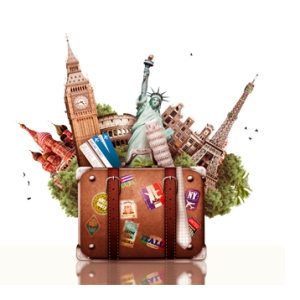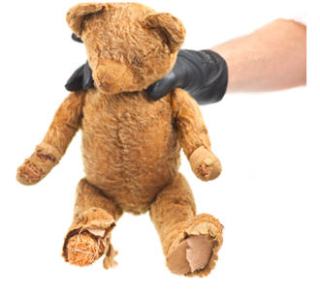 If there is one thing that single, childless women don’t want to do it’s turn 40: that miserable place in time where it’s not quite too late for you but not looking good either. I knew that I had two options. I could sit in the bottom of my closet with a bottle of vodka, or I could go somewhere spectacular and pretend it wasn’t happening. That is how I ended up at the top of a skyscraper in Bangkok watching fireworks on my 40th birthday.
If there is one thing that single, childless women don’t want to do it’s turn 40: that miserable place in time where it’s not quite too late for you but not looking good either. I knew that I had two options. I could sit in the bottom of my closet with a bottle of vodka, or I could go somewhere spectacular and pretend it wasn’t happening. That is how I ended up at the top of a skyscraper in Bangkok watching fireworks on my 40th birthday.
I had planned the trip of a lifetime packed with elephants and scuba diving, but I also decided to spend a few days in introspection; kind of like that woman did at an ashram in Eat, Pray Love. I’m a big fan of contrived, life-changing moments. I went to a tiny fishing village that looked like a good idea on the map. The hotel was fancy and remote and promised a Zen-like fantasy. I first became concerned about this decision when the taxi driver at the airport asked me if I was really sure and shook his head. When I arrived, the staff of the hotel were waiting out front, kind of like the servants waiting for the dowager at Downton Abbey. I thought to myself, “You have now entered the Twilight Zone.” That thought got less and less funny over the next few days.
The receptionist said, “Welcome Miss Mick-esh-e-el-e.” My face froze for a minute so I could think about it. She had seen my passport and turned my middle name, Michelle, into 5 syllables. I smiled in amusement, not realizing that this is what the entire staff of the hotel was going to call me for the next three days. It turned out that I was the only guest in the hotel. It wasn’t just off-season in Thailand, it was off-off season. I would soon be able to answer the question, “Is there such a thing as too much customer service?”
Thai people don’t really drink, so the menus cater to marauding tourists who like umbrellas in their drinks. I usually only drink wine so they dusted off a bottle of warm red that I’m sure they found in a box in a storage room. I said I would take the whole bottle, thinking I would have a glass with dinner and take the rest back to my room, to be enjoyed at my leisure the next day. I ordered noodles and sat back to enjoy Kenny G over the loudspeaker. I took a sip of wine. A waiter leaped forward to refill my glass. I took another sip. Another person from the line behind me refilled the glass.
At that rate I was going to be drunk in no time so I left the glass alone and focused on my noodles. I took a bite and someone stepped forward to push the available spices closer to me. Three more bites and the staff was so bored that when I glanced away to enjoy the view, someone whisked my bowl away. I decided to take a break from the awkward silence and went in the direction of the bathroom. A man jumped in front of me to lead the way, pointing out each step in case I hurled myself down the staircase. He opened the door to the ladies bathroom and waved me through the door. You heard me. He opened the public restroom door. “Well, this just keeps getting creepier,” I thought. A bathroom attendant bowed and directed me into a stall. I was the only guest in the hotel and there was a bathroom attendant waiting for me.
In Thailand, many restrooms don’t have toilet paper. They have a high-pressure hose on a hook next to the toilet. My first encounter with the hose is a story for another day, but it has to be said that I firmly believe that a bathroom where you have to spray yourself with a hose should not have an attendant, just on principle. I eventually went back to my room deflated and discouraged by my weird and lonely evening. My Eat, Pray, Love moment this was not.
Where was I going with this? Oh, yes . . . turning 40. Fortunately, my friend, Bree, joined me in Bangkok to stop me from combining both Plan A and Plan B and drinking vodka in a closet in a hotel in Thailand. We walked down a sketchy street one night in search of dinner and an authentic Thai experience, and found a street vendor with a card table in an alley. I pointed at something that looked like chicken and we took our seats in the alley, enjoying the fact that our mothers would have had a heart attack if they knew where we were. There was a waitress of sorts but she seemed disinclined to help us in any way so we decided it was a “help yourself” kind of alley and liberated some water from a fridge.
While we were eating our surprisingly delicious meal on paper plates, I surveyed the terrain and saw a huge skyscraper with a fancy dome at the top that was clearly a restaurant. I told Bree that when we were quite finished scrounging for water and chicken in the alley, we should find that dome. That is how—the next day on my 40th birthday—we ended up in the fanciest open-air restaurant at the top of the largest building in Bangkok, watching fireworks over the river. It was an amazing moment that I couldn’t have planned if I had tried. I teared up on the balcony, grateful that, although my retreat in a fishing village had turned out to be a disaster, a random upward glance from an alley had brought everything together to give me my moment . . . to remind me that life wasn’t ending at 40.
It turns out meaningful experiences can’t always be planned. Those moments find you. They won’t come to you if you are in the bottom of a closet with a bottle of vodka, so you have to put yourself out there. But you also can’t decide when happiness will find you. You just have to trust that it will. It was a surprise but I will never forget the moment when the city of Bangkok put on a fireworks show just for me. Shhh, that’s what happened.








